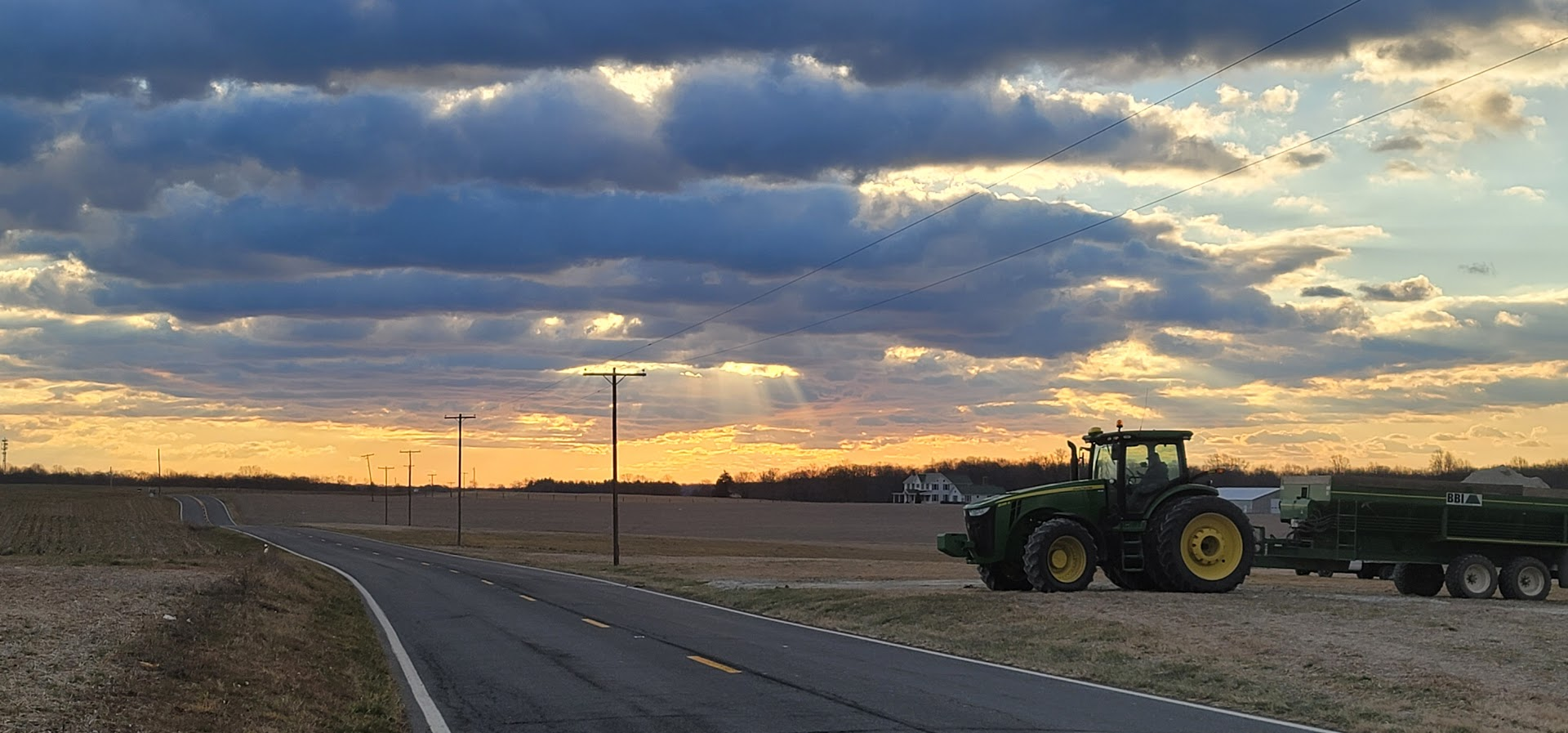
Maryland's farms play an important role in creating a resilient and local food supply and protecting our waterways and groundwater. Maryland requires that farms have nutrient management plans, which reduce the amount of nitrogen and phosphorus running off farms and into our waterways. Agriculture is a significant contributor to the Chesapeake Bay's nutrient pollution, but significant improvements have been made to control this pollution within Maryland. Many farmers are incorporating more sustainable practices to improve their stewardship of the land and waters of our state, and programs exist to help connect our farmers to the technical assistance they need to be better stewards of their land. Driving around the state, you will see saplings planted as buffers around streams, improving filtration of runoff and eventually shading the streams to cool temperatures.
Pollinator Protection Act of 2016: The legislation that was passed in 2016 needed a technical fix! The legislation was intended to restrict the sale of neonicotinoid pesticides to only registered pesticide applicators, but it has been interpreted to allow stores that sell to registered pesticide applicators to ALSO sell to the public. HB208 clarified that only certified applicators or farmers may purchase neonicotinoid pesticides. Moving forward, these pesticides will not be on the shelves where consumers may purchase them.
Smart Solar Siting: Solar energy can be an amazing tool to reduce greenhouse gases and provide clean energy, but unfortunately it is a new development pressure that can displace Maryland farms. Throughout the state, the solar industry has targeted farmland as an ideal place to build, outcompeting farmers who need acres of land to maintain their economic viability. While framed as providing a new source of revenue for farmers, farmers and landowners are not necessarily the same group of people. So while a solar lease may give the landowner a new source of revenue, it is by displacing the previously leasing farmer. Clean Water Action supports a comprehensive solar siting plan to evaluate how much farmland has to be displaced to meet clean energy goals, and to drive the development to already disturbed lands: rooftops, parking lots, brownfields, and other similar lands. Other states, like New Jersey, have undertaken similar planning processes to minimize the impact on productive farmland.
Food and Farmworker Protections:
The COVID-19 pandemic poses a severe threat to the essential workers who feed us, including workers in poultry and seafood processing plants and in agricultural fields . Food and farm workers are unable to maintain necessary health and safety protocol due to crowded working and housing conditions, inadequate personal protective equipment, and lack of paid sick leave or access to medical care. These workplace and housing conditions put agricultural workers and their families at high risk for the COVID-19 illness. Despite growing concern for essential workers and fear of disruptions to the food system, these weaknesses remain unaddressed. Many workers in Maryland’s agricultural and meat processing industries are immigrants or migrant workers and fear risk of retaliation for reporting issues in their workplace. Maryland currently does not have mandatory protection measures to prevent further disease outbreaks.
In 2021, Clean Water Action supported the Maryland Essential Workers Protection Act which included food and farmworkers, required an emergency temporary standard for short-term workplace changes to ensure safer working conditions, and requires that the state create an emergency preparedness plan for future public health emergencies. Unfortunately, before the State was required to act under the law, Governor Hogan let the state of emergency expire, ending most of the terms of the law. Maryland is still required to create an emergency preparedness plan, but is attempting to use an existing plan for natural disasters to satisfy the requirement for a plan for infectious disease emergencies. Clean Water Action and Marylanders for Food and Farmworker Protection, as well as other allies in the public health and worker protection spheres, continue to push the administration.
In 2020, Senator McCray and Delegate Charkoudian successfully passed legislation to require a heat stress standard. As the planet warms, heat is an increasing source of danger for workers in various fields, but especially construction and agriculture. Clean Water Action and Marylanders for Food and Farmworker Protection are working with occupational safety and health experts to make our suggestions for a heat stress standard that will adequately protect farmworkers who have to navigate short windows to harvest produce during summer months.
